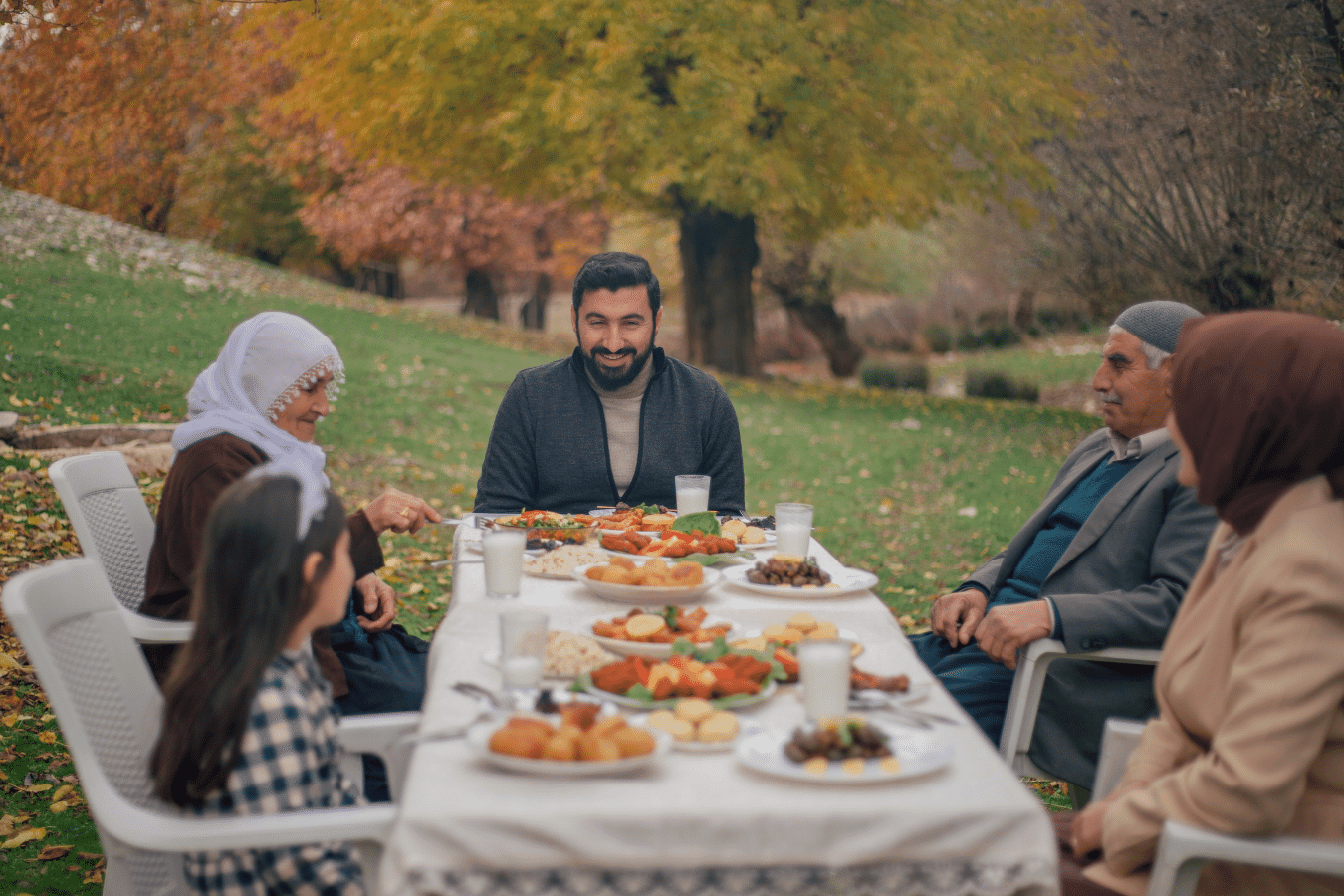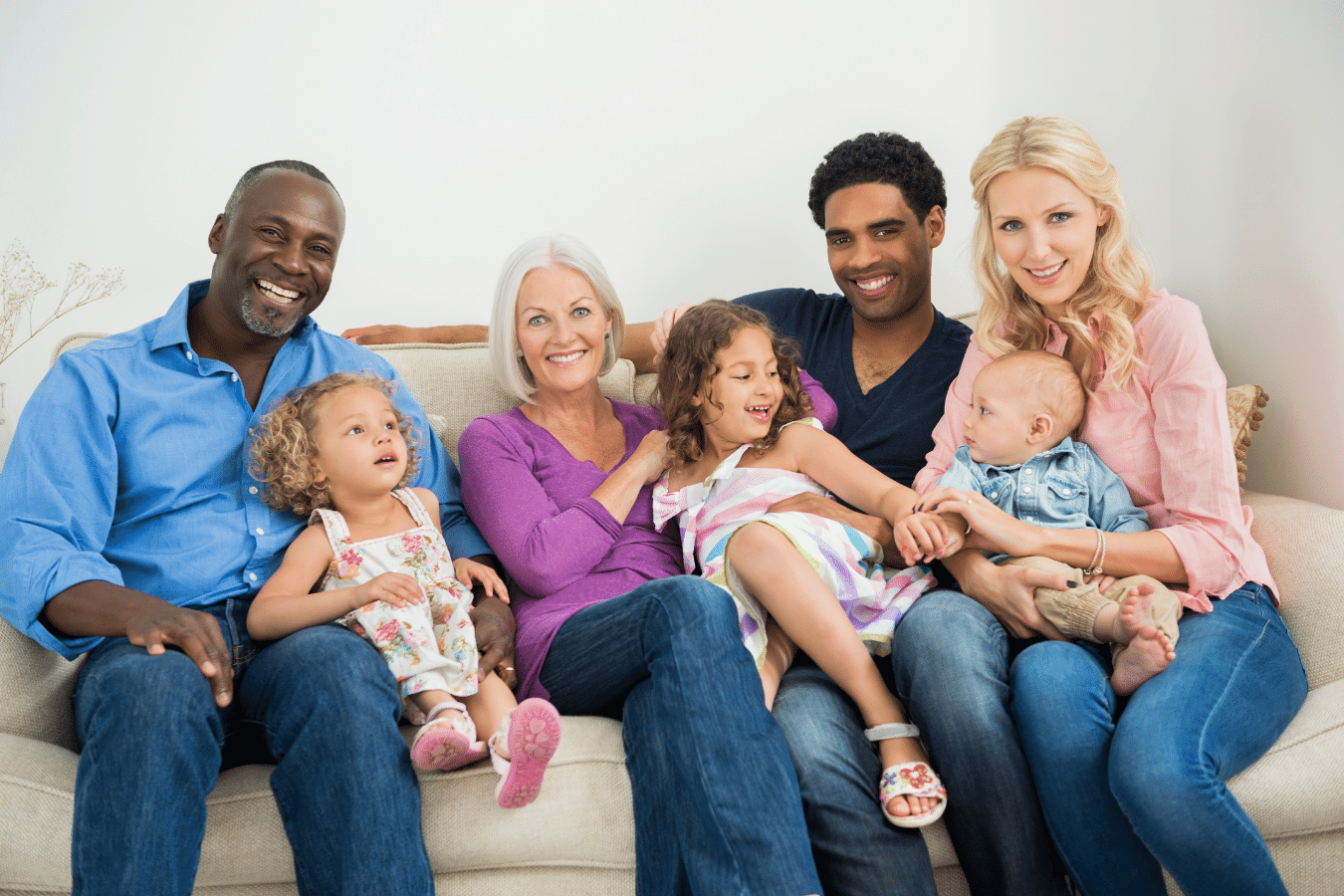July 07th, 2022

The Mental Health Benefits of a Multigenerational Household
The many benefits and drawbacks of multigenerational households!
A multigenerational household is a home where three or more generations of a family all live together. There are several common situations where this can occur. A young couple and their child may move in with their parents to save for their own home (52% of young adults are currently living with their parents). Or an elderly grandparent may move in with their children and grandchildren after selling their home.

More and more families in the United States are forming multigenerational households, and for many, the benefits help to create a better quality of life.
Increased Familial Bonds
Living together and sharing your daily life with another person is a great way to increase familial bonds. Even people who are not directly blood-related can benefit from this phenomenon. If you have never been particularly close to your father-in-law, you may discover interests that you have in common after he moves into your home during his late retirement.
The United States is a large country, and many people do not live close to their parents and grandparents. By forming a multigenerational household, you can develop strong relationships that may have weakened due to distance and a lack of regular communication.

Improved Finances
Financial reasons are a strong motivator for living with multiple generations of your family. With the increasing popularity of remote work, many people are moving in with their families to save money on living expenses instead of paying rent in the city where their company is located. By moving in with family members, you can either pay no rent or a heavily reduced rent and put more money into your savings account.
There are other ways living with your family can save you money. Large, multigenerational households can buy food and household supplies in bulk and spend less money on those goods overall. There are also often more wage-earning adults in a multigenerational house, meaning there are more sources of income that can go towards the mortgage, rent, insurance, and utility bills.
Access to Readily Available Child Care
One of the most prominent benefits of living in a multigenerational household is the help that it can provide with child care. The saying “it takes a village” most definitely applies to multigenerational homes. Children who grow up in homes like this are raised by their parents, aunts, uncles, and grandparents.
This provides a strong support system for the children’s parents, and can also help to save the family money on costs like after-school care, daycare, and babysitting. In addition to this, moving into a new house with other family members can help your child adjust more easily to the move and feel more comfortable in their surroundings.

Enhanced Empathy
Living with other members of your family may help enhance your capacity for empathy. Your family members may come from different generations, have different cultures or countries of origin, and may even speak different languages from you! The beauty in all of these differences is that through conversation and exposure to these other family members, you are increasing your capacity to understand and connect with people who are different from you.
This enhanced empathy can produce benefits in other parts of your life. You can use your communication skills and empathy to develop stronger, friendlier relationships with your neighbors. With empathy, you’re able to build strong connections both inside your home and out in the community.
Navigating Challenges of Multigenerational Households
While living with multiple generations can save you money, help you raise your children with more support, and enhance your empathy, it is not without its challenges. But every family can overcome these challenges if they are willing to identify them, address them, and move past them through compromise and communication.

Cultural Differences
Not everyone in the same family grew up in the same culture. Your in-laws may come from another country and have different priorities and values than you are used to. Even with family members like grandparents and grandchildren, there may be differences based on today’s culture and how it contrasts with the way the grandparents were raised.
These differences can very easily cause conflicts between family members, but they don’t have to!
Overcoming cultural differences is all about putting yourself in another person’s shoes and seeing your differences as a learning experience for everyone involved. Family members with different cultural backgrounds can teach each other new languages, practice old family recipes, and share traditions from around the world.
Social Stigmas
There are plenty of countries around the world where multigenerational living is the norm. However, the United States has developed a very individualistic society over time, and as a result, there is a bit of a stigma attached to multigenerational households.
Younger adults who still live with their parents may be shown in the media as lazy or entitled. For older generations, there is often the expectation that they live in a nursing home instead of with their children.
While every generation in a multigenerational home will have to face certain social stigmas, they can overcome those by understanding that the benefits they gain from living with their extended family members far outweigh anything that society may say.

Varying Needs/Wants
Living with a large number of people, whether they are your friends or your family, will always lead to conflicts. People have different needs and wants, and those impact their daily habits and life decisions.
For example, the grandparents in the house might not be comfortable with large parties being thrown in the house. So the younger generations might make a compromise that any parties they throw will end by a reasonable time at night so that they don’t interfere with anyone’s sleep.
Part of living in a house with your extended family is coming to terms with the fact that people live on different schedules and have different living preferences. Through kindness, patience, respect, and compromise, family members can figure out a schedule and way of living that satisfies everyone in the house.
Final Thoughts on Multigenerational Households
Whether you're buying a home in Charlotte or Raleigh there are many pros and cons to having a multigenerational household all under one roof. If you're looking to understand the best neighborhoods or more about moving to a new city we are here to help!

Ryan Fitzgerald
Hi there! My name is Ryan Fitzgerald, and I am a REALTOR®. My goal is to help you learn more about real estate through our Real Estate Blog! Hopefully, you enjoyed the above blog post and it found a way to provide help or value to you. When you're ready to buy or sell a home of your own let us know here. Please feel free to join the conversation by dropping us a comment below.

